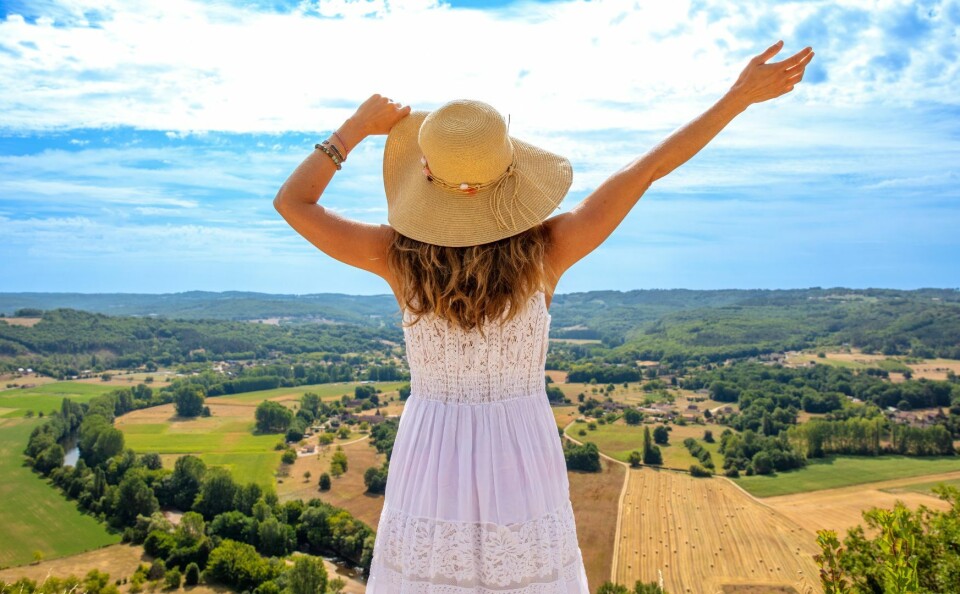-
I became a professional upholsterer after moving to France
Jo MacDonald, 59, describes how she monetised her hobby in Gers
-
France and UK edge closer on youth mobility deal
Key differences remain but partners have struck a 'warmer tone' over plans
-
Struggle to find tradespeople for home repairs in France, survey finds
67% of respondents believe 'the government could implement more measures to improve the situation'
Three women on how they forged their own French lives in Dordogne
We hear how the women broke the expatriate mould to lead independent lives in their adopted country

More often than not, the word ‘expat’ conjures up an image of a comfortably retired or semi-retired couple.
Perhaps they have owned a holiday home in France for many years and have finally made the move. Or else, the classic tale is of a young couple transforming a ramshackle property into a thriving hospitality business.
Not everyone fits this mould. Indeed, there are many women who, through choice or circumstance, have established independent lives in their adopted country.
‘I was too busy to give my fears much thought’
Among these is Julia French, 51, who in 2005, along with her husband, exchanged good jobs in greater London for a more wholesome environment for their young family in Dordogne.
Photo: Julia French surveying a pool project; Credit: Julia French
They launched a successful company building swimming pools and soon Julia found herself in charge of the concrete mixer, churning 13 tonnes of the stuff per day.
Eight years later, she surprised her family, friends and adopted community by falling in love with a client: a woman, who was also married.
Julia’s husband returned to the UK, leaving her to deal with debts, unfinished projects and contracts for new pools.
Read more: What happens to a joint French bank account during a divorce?
“With a lot of will and hard work, I managed to honour all of the company’s commitments by collaborating with my established contacts in the swimming pool world,” she says.
On top of that came the stress of the divorce and the responsibilities of single parenthood, of dissolving the old company and setting up a new one of her own, Pristine Piscines.
“It was a manic time and I was too busy to give my fears much thought,” Julia says.
“Running a company on my own proved to be a steep learning curve and also a very rewarding experience.”
A typical day will involve visits to diagnose problems with existing pools and meetings with potential clients about new pool projects.
Julia now shares a home near Excideuil with her partner, who has her own business as a wedding photographer.
“We may have caused a bit of a storm in the beginning, but thankfully times have moved on when it comes to same-sex relationships and that is now behind us,” Julia says.
‘My sense of adventure always gets the better of me’
Julie Harris, 64, has also weathered a relationship breakdown in France.
Her take is that there is always one partner more keen to move than the other, putting an inherent strain on the relationship from the start.

Photo: Julie fell in love with Dordogne after visiting her close childhood friend; Credit: Julie Harris
When that same friend developed terminal cancer, she decided to settle close by in 2010, bringing along her catering business, Le Lunch Club, as well as her partner, whose work as a television producer stayed behind in the UK.
“I have always earned my living as a cook. I can’t do anything else,” she says.
Soon she found herself catering for weddings and running pop-up restaurants.
Her passion is for Indian and Asian food and one month of the year is spent in India researching new recipes.
Julie’s Lunch Club quickly found a niche in the market and garnered many British and Dutch followers.
Her relationship, however, eventually fell by the wayside and Julie was left with a significant amount of debt.
To complicate matters, when Covid struck, she had to reinvent her business to survive.
She started selling takeaway curries to order from her car boot at various locations around Hautefort.
Read more: Insurance clarified for self-employed workers in France
Since becoming single, Julie has dated a couple of people in Dordogne – a local farmer who she says wooed her with roasted chestnuts and strong spirits, and a British expatriate.
Earlier this year, she became involved with a man in India.
She is currently selling her house to finance a new culinary project in Kerala, while buying a smaller home in France to “keep a bed in Europe”.
“My sense of adventure always gets the better of me,” she says.
‘I’ll always be able to find a job’
Suzanne van Tongerloo, 53, speaks French at home in Dordogne with her three teenage children from a five-year relationship with a French man.

Photo: Suzanne moved to Bordeaux first in 2001; Credit: Suzanne van Tongerloo
She works as a secretary at the mairies of Chourgnac and Sainte-Orse. In her office, she is dwarfed by filing cabinets.
Her job description covers book-keeping, planning applications, selling plots at the cemetery, applications for bonfires and the occasional marriage.
To qualify for the job, she had to compete for a place on a specialist course in Périgueux.
“There’s a shortage of qualified mairie secretaries in France and I will always be able to find a job wherever I choose to live,” she says.
Her knowledge of English and Dutch comes in handy, as both villages have their fair share of expatriates.
Born and raised in Holland, Suzanne ran a restaurant in Amsterdam with her sister before moving to Bordeaux in 2001 and working in an ice-cream parlour.
She was following in her parents’ footsteps: they left Holland in 1984 to run a campsite in France.
“For Dutch people, the sense of space and freedom here can be irresistible,” she explains.
Soon she exchanged the city for the countryside of the Creuse and embarked on various courses: French with the Alliance Française, the art of official letter-writing, and a BTS (Brevet de Technicien Supérieur).
Read more: France moves to clamp down on workers’ training course scams
During one of these, she met the father of her children. He hailed from Dordogne, where she eventually settled.
Even though that relationship did not work out, Suzanne is open to the idea of another romantic relationship.
To that end, she has tried online dating but is pessimistic about the chances of bumping into someone locally.
Related articles
British woman's warning over spouse's right to her French bank account
























